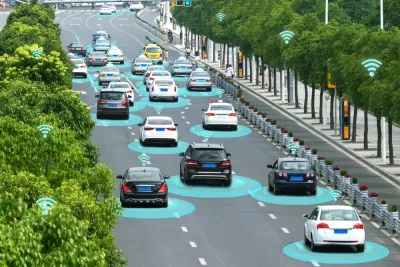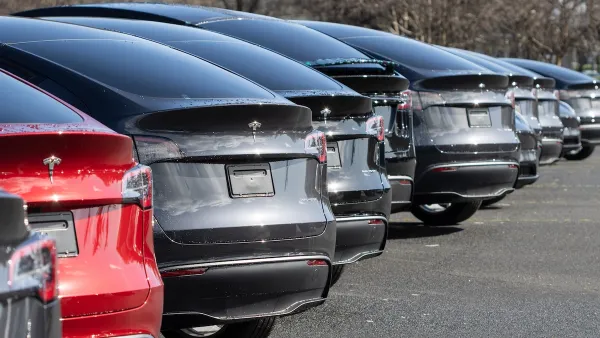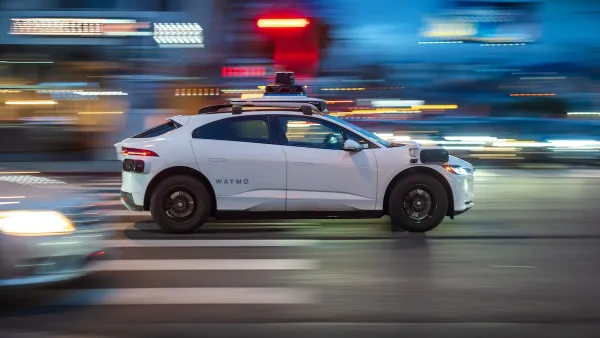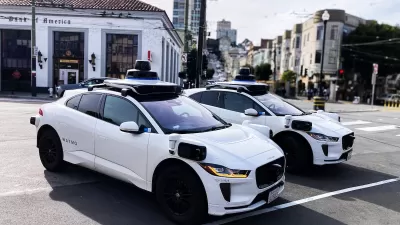A new report details the promise and perils of the growing autonomous vehicle industry.

A new report from the Urban Institute outlines the potential benefits and pitfalls of autonomous vehicles. Dan Zukowski summarizes the report for Smart Cities Dive.
According to the report, “Self-driving cars have the potential to increase transportation equity and safety but need regulation at all levels of government to avoid worsening urban sprawl, climate change and public health.”
In theory, AVs could improve mobility for people with disabilities and mobility impairments, reduce climate impacts, and make transportation more accessible. But without more robust regulations and investments in public transit and other multimodal infrastructure, AVs could add to traffic congestion and encourage sprawl. As the Urban Institute’s Yonah Freemark explains, “The ability to travel longer distances without the task of driving could encourage people to live further from urban centers.”
The report calls for a “substantial” expansion of testing and data collection for AV crashes and “recommends that states and local governments work with transit agencies to encourage multimodal options, ensure ride-hailing AVs serve all communities and follow Americans with Disabilities Act requirements, and develop policies to encourage the use of zero-emission AVs.” The report acknowledges that widespread adoption of AVs is still in the distant future, but ride-hailing companies may be some of the earliest to adopt the technology.
FULL STORY: Self-driving cars’ benefits, perils outlined in new report

Planetizen Federal Action Tracker
A weekly monitor of how Trump’s orders and actions are impacting planners and planning in America.

Map: Where Senate Republicans Want to Sell Your Public Lands
For public land advocates, the Senate Republicans’ proposal to sell millions of acres of public land in the West is “the biggest fight of their careers.”

Restaurant Patios Were a Pandemic Win — Why Were They so Hard to Keep?
Social distancing requirements and changes in travel patterns prompted cities to pilot new uses for street and sidewalk space. Then it got complicated.

Platform Pilsner: Vancouver Transit Agency Releases... a Beer?
TransLink will receive a portion of every sale of the four-pack.

Toronto Weighs Cheaper Transit, Parking Hikes for Major Events
Special event rates would take effect during large festivals, sports games and concerts to ‘discourage driving, manage congestion and free up space for transit.”

Berlin to Consider Car-Free Zone Larger Than Manhattan
The area bound by the 22-mile Ringbahn would still allow 12 uses of a private automobile per year per person, and several other exemptions.
Urban Design for Planners 1: Software Tools
This six-course series explores essential urban design concepts using open source software and equips planners with the tools they need to participate fully in the urban design process.
Planning for Universal Design
Learn the tools for implementing Universal Design in planning regulations.
Heyer Gruel & Associates PA
JM Goldson LLC
Custer County Colorado
City of Camden Redevelopment Agency
City of Astoria
Transportation Research & Education Center (TREC) at Portland State University
Camden Redevelopment Agency
City of Claremont
Municipality of Princeton (NJ)





























